Aug 20, 2024
Expression
*Other ways to* _I'm confused_ 🤔
📖️ ℝ𝕖𝕒𝕕𝕚𝕟𝕘 𝕣𝕖𝕔𝕠𝕣𝕕 📖️
*Other ways to*
_I'm confused_ 🤔
1. "Huh? 🤔"
2. "Lost in thought 🌀😕"
3. "Confused and discombobulated 🤯😵"
4. "My mind is a jumble 🤯💭"
5. "I'm all mixed up 🌀😖"
6. "Perplexed and puzzled 🤔🧩"
7. "My brain is foggy 🌫️😓"
8. "I'm in a daze 😵🌀"
9. "Totally baffled 🤯😮"
10. "Need clarification 🤔💡"
*Or, if you want to be more creative:*
1. "My thoughts are a tangled web 🕸️😩"
2. "I'm stuck in a maze 🗿️😓"
3. "My mind is a muddle 🤯🌪️"
4. "I'm chasing my tail 🐾😕"
5. "I'm in a state of utter bewilderment 😲🤯"
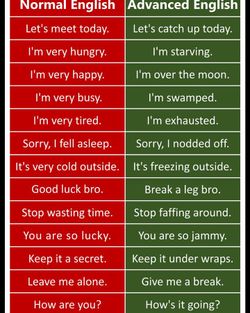
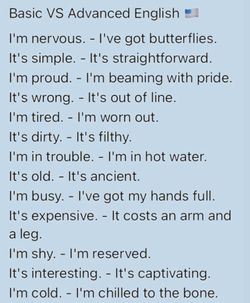
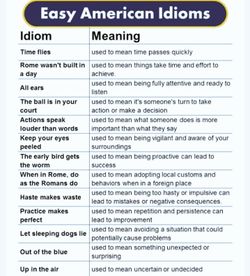
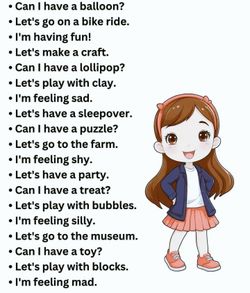

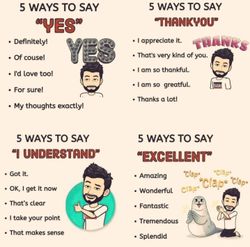
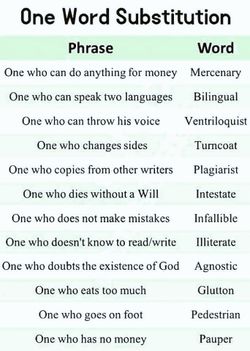
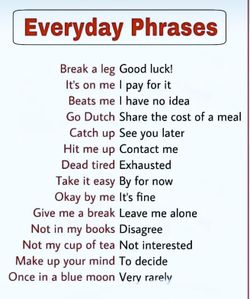
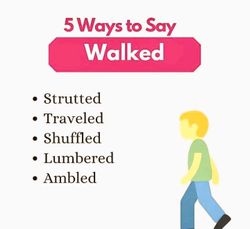
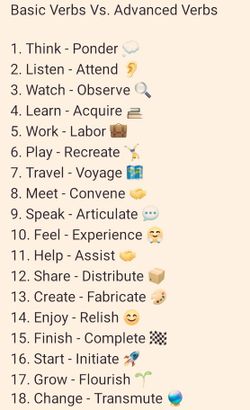
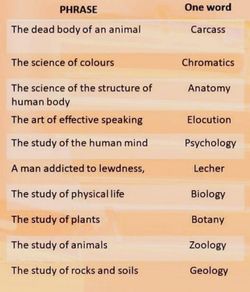
Phrases for "Agreeing" ✅
Phrases for "Agreeing" ✅
👍Me too
👍Exactly
👍I agree 100%
👍That's true
👍You're right
👍Absolutely
👍I'm with you
👍I suppose so
👍I totally agree
👍That's for sure
👍I feel the same
👍Tell me about it
👍No doubt about it
👍That's a good point
👍I couldn't agree more
👍You're absolutely right
👍You have a point there
👍I was just going to say that
👍That's exactly what I think,
This, These, That & Those
THIS
➡️ for people and things that are near to the speaker (listener)
➡️ to introduce someone
➡️ on the phone to introduce yourself
➡️ to talk about things that are near in time
➡️ with in time phrases such as this summer, this winter, this week, this year, etc.
➡️ to refer to something that is going to happen in the future, or something that we are going to say or do
________
THESE
➡️ for people and things that are near to the speaker (listener)
➡️ to talk about things that are near in time
________
THAT
➡️ for people and things that are not near to the speaker (listener)
➡️ to talk about things that are further away in time
➡️ to refer back to something that has just happened
________
THOSE
➡️ for people and things that are not near us
➡️ to talk about things that are further away in time
🟢🟢🟢 IRREGULAR Plurals 🟢🟢🟢
🟢🟢🟢 IRREGULAR Plurals 🟢🟢🟢
Person ➡️ People
Foot ➡️ Feet
Tooth ➡️ Teeth
Child ➡️ Children
Mouse ➡️ Mice
Sheep ➡️ Sheep
Fish ➡️ Fish
Leaf ➡️ Leaves
Goose ➡️ Geese
Woman ➡️ Women
Aircraft ➡️ Aircraft
Apex ➡️ Apices
Bison ➡️ Bison
Crisis ➡️ Crises
Curriculum ➡️ Curricula
Datum ➡️ Data
Focus ➡️ Foci
Series ➡️ Series
Vita ➡️ Vitae
Tuna ➡️ Tuna
Quiz ➡️ Quizzes
Index ➡️ Indices
Ellipsis ➡️ Ellipses
Alumna ➡️ Alumnae
Erratum ➡️ Errata
Ox ➡️ Oxen
Oasis ➡️ Oases
Swine ➡️ Swine
Trout ➡️ Trout
Genus ➡️ Genera
Diagnosis ➡️ Diagnoses
Analysis ➡️ Analyses
Man ➡️ Men
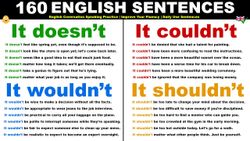
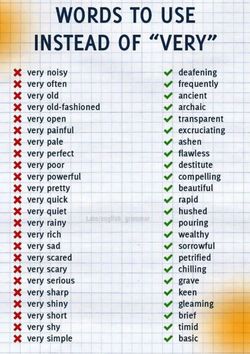
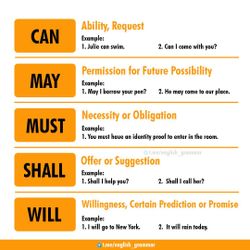
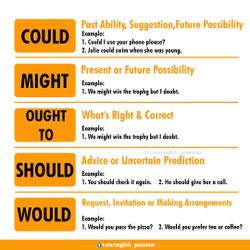
Phrases
These words and phrases describe different types of deals, offers, or pricing structures.
1. Bottomless – Unlimited refills (often used for drinks, like coffee or mimosas).
2. All-inclusive – A package that includes all services and amenities, such as at a resort.
3. Unlimited – Without restrictions or limits, often used for services like data plans.
4. Free-flow – Continuous or unlimited serving, often used for beverages.
5. Open bar – A bar where drinks are free for guests, usually at a set event or for a period of time.
6. Flat-rate – A fixed price for a service or product, regardless of usage or amount.
7. Prepaid – Paid for in advance, often for a specific service or amount.
8. Buffet-style – A meal where guests serve themselves from a variety of dishes, usually for a fixed price.
9. Pay-per-view – A system where customers pay a fee to watch a specific event or program.
10. Fixed-menu – A set menu offered at a restaurant for a fixed price, sometimes with limited options.
You'll Be 'Sharp as a Tack' with These Expressions
You'll Be 'Sharp as a Tack' with These Expressions
There are many ways to describe smart people. For example, they can be called "bright" or "sharp." Someone who is "as sharp as a tack," for example, is very clever and a quick thinker.
It's not very nice to call someone "dumb", however. So English speakers often use idioms to describe such people. For example, someone who is "not the sharpest tool in the shed" is not very smart.
Someone who is "book-smart" knows a lot about different subjects from studying. You can also describe them as a "walking encyclopedia" — just like an encyclopedia, they seem to have information about everything.
Other people may not read much, but have learned a lot from real-life experiences. Such a person is called "street-smart."
If someone doesn't know something, then they are "ignorant" of it. For example, "John is a great artist, but he is ignorant when it comes to math and science."
In English, the expression "ignorance is bliss" means that if you don't know about something, you don't worry about it. For example, "Bill never watches the news, because he believes that ignorance is bliss."
However, the opposite is often true: the more you know, the better off you are. This idea is expressed by the common expression, "knowledge is power."
*💎Happiness ldioms*
*💎Happiness ldioms*
🤭🥳🤑😊
*💎 Have a whale of a time:*
This idiom means to have a great or enjoyable time. For example, "We had a whale of a time at the amusement park, going on all the rides and eating delicious food."
*💎 On cloud nine:*
This idiom is used to describe someone who is extremely happy and excited. For instance, "After receiving the job offer, Sarah was on cloud nine for days."
*💎 Over the moon:*
This idiom means to be extremely happy and delighted about something. For example, "When she found out she won the lottery, Jane was over the moon with joy."
*💎 Walk on air:*
This idiom is used to describe someone who is very happy and elated. For instance, "After her team won the championship, Emily felt like she was walking on air."
Unit 15: The Lucky Knife Word List
Unit 15: The Lucky Knife
Word List

absorb [əbˈzɔːrb] v. 
To absorb a liquid means to take it inside.
→ He used a sponge to absorb the water on the floor.

boss [bɔ(:)s] n. 
A boss is a person in charge of other people at work.
→ My boss is a nice person.

committee [kəˈmɪtɪ] n. 
A committee is a group of people who meet together to make decisions.
→ The school’s committee agreed on a new dress code for students.

contract [ˈkɒntrækt] n. 
A contract is a written agreement between two people.
→ The woman signed a contract when she bought the house.

crew [kruː] n. 
A crew is a group of workers.
→ My father has a crew. They help him build houses.

devote [dɪˈvəʊt] v. 
To devote time to something means to spend a lot of time doing it.
→ She devotes two hours a day to playing the piano.

dig [dɪg] v. 
To dig is to make a hole in the ground.
→ My dog digs in the yard so he can hide his bones.

dine [daɪn] v. 
To dine means to eat dinner.
→ The young couple dined at their home.

donate [ˈdouneit] v. 
To donate is to give something to a charity or organization.
→ We donate money to Christmas charities every year.

double [ˈdʌbəl] adj. 
If something is double, it is twice as much, or twice as many.
→ I paid almost double the amount for that shirt.

elevate [ˈeləveɪt] v. 
To elevate something is to put it at a higher level.
→ The man elevated the picture so he could see it better.

flavor [ˈfleivər] n. 
A flavor is the taste of food or drinks.
→ The flavor of the ice cream was very good.

foundation [faʊnˈdeɪʃən] n. 
A foundation is a group that provides money for research.
→ The foundation raised money to give scholarships to students.

generation [ˌdʒenəˈreɪʃən] n. 
A generation is a group of people who live at the same time.
→ My grandparents are from a different generation than me.

handle [ˈhændl] n. 
A handle is the part of an object people hold while using it.
→ The pot is very hot. So pick it up by the handle.

layer [ˈleɪə:r] n. 
A layer covers over something or is between two things.
→ There was a layer of snow on the tops of the houses this morning.

mud [mʌd] n. 
Mud is soft, wet dirt.
→ My brother played rugby in the mud. Now he’s dirty.

smooth [smuːð] a. 
If something is smooth, it has no bumps.
→ The baby’s skin felt very smooth.

soil [sɔɪl] n. 
Soil is the top layer of land on the Earth.
→ The boy planted flowers in the soil and watered them every day.

unique [juːˈniːk] adj. 
If people or things are unique, they are not like the others.
→ Her dog is unique. I’ve never seen one quite like it.
The Lucky Knife
The Lucky Knife
I’ve devoted my life to studying past generations. Last year, I had a unique chance to work with my uncle. Our job was to find old treasures for a school’s history foundation. He also hired a crew of students. They signed a contract to work with him. He was the boss. The place was strange, though. I dined on many things that I had never tasted before. They had an unusual flavor.
We had been there about a month and hadn’t found anything. One day, I began to dig in the soil. The ground’s layers got wetter. Soon I was digging in the mud. My shovel began to get very heavy. It felt like it had doubled in weight because the ground had absorbed a lot of water.
Finally, I saw something in the mud. It was an old knife! The handle felt smooth in my hand. I elevated it so I could see it better. There was writing on it.
“It says it will bring good luck,” my uncle said with a smile. “Why don’t you keep it?”
I put it in my tent. The next day, we found many more things. There were pots, jewelry and weapons. My uncle donated all of the things to a special committee. Many newspapers wrote stories about it. It seemed the knife really did bring good luck!
Unit 20: Albert Einstein
Unit 20: Albert Einstein
Word List
accomplish [əˈkʌmplɪʃ] v.
To accomplish something means to finish it.
→ He accomplished his goal of running ten miles.
approve [əˈpruːv] v.
To approve of something means you like it or are happy about it.
→ Her co-workers approved her new plan.
approximate [əˈprɒksəmɪt] adj.
Approximate means to be close to an exact amount, number or time.
→ My approximate height is two meters.
barrier [ˈbærɪər] n.
A barrier is something that is in your way.
→ The Great Wall was a barrier between China and its enemies.
detect [dɪˈtekt] v.
To detect something means to notice or find something.
→ The boy ran to the kitchen when he detected the smell of cookies.
duty [ˈdjuːtɪ] n.
A duty is something that a person has to do.
→ It is parents’ duty to take care of their children.
elementary [ˌəlɪˈmentərɪ] adj.
When something is elementary, it is the first or most simple thing.
→ Children go to elementary school before high school.
failure [ˈfeɪljər] n.
A failure happens when you do not do something right.
→ My cooking ended in failure because I burned the food.
gradual [ˈgrædjʊəl] adj.
When something is gradual, it happens slowly.
→ Children learn to read at a gradual pace. They do not learn right away.
immigrant [ˈɪmɪgrənt] n.
An immigrant is a person who moves to a different country.
→ My parents were immigrants. They came from Poland.
insert [inˈsəːrt] v.
To insert something means to put it in something else.
→ The mailman inserted the letter into the mailbox.
instant [ˈɪnstənt] n.
An instant is a very short amount of time.
→ A microwave oven cooks food in an instant.
poverty [ˈpɒvətɪ] n.
Poverty is the state of being poor.
→ Poverty is a problem in many countries around the world.
pretend [prɪˈtend] v.
To pretend means to make believe something is real.
→ The boy liked to pretend he was a king.
rank [ræŋk] n.
A person’s rank is their place in an order of people.
→ The man got to the rank of captain in the navy.
recognition [ˌrekəgˈnɪʃən] n.
Recognition is getting praise from other people.
→ The hero got recognition for his brave deed.
refrigerate [rɪˈfrɪdʒəreɪt] v.
To refrigerate something means to make it cold.
→ Grocery stores refrigerate fruit to make it last long.
rent [rent] n.
Rent is the money people pay to someone to live in a certain place.
→ To live in this house, I have to pay rent at the start of each month.
retire [rɪˈtaɪər] v.
To retire is to leave a job, usually because of old age.
→ My father is sixty-five years old. He is about to retire from work.
statistic [stəˈtɪstɪk] n.
A statistic is a number that tells a fact about something.
→ The statistics showed that we did just as well this year as last year.
ways to say "ok":
ways to say "ok":
1. Sure thing
2. Understood
3. No worries
4. Affirmative
5. Cool
6. Gotcha
7. 10-4
8. Very well
9. Agreed
10. Right away
11. Consider it done
12. Definitely
13. Copy that
14. Yep
15. Okey-dokey
16. Alrighty
17. Fine
18. Okay by me
19. That works
20. As you wish
21. Absolutely
22. Will do
23. Sounds like a plan
24. I’m on it
25. It’s a go
26. Bingo
27. No sweat
28. Right you are
29. No biggie
30. Works for me
31. Check
32. Certainly
33. You got it
34. All good
35. Perfect
36. Consider it done
37. For sure
“because”
Using various synonyms or alternative expressions for “because” can enhance the richness and clarity of your English. Here are some examples:
1. Due to: “The event was canceled due to bad weather.”
2. Owing to: “The delay occurred owing to unforeseen circumstances.”
3. Since: “I stayed home since I wasn’t feeling well.”
4. As: “He couldn’t attend the meeting as he had a prior commitment.”
5. Given that: “Given that it’s raining, we should bring umbrellas.”
6. In light of: “In light of recent events, we’ve decided to change our strategy.”
7. Seeing that: “Seeing that you’re busy, I’ll come back later.”
8. On account of: “On account of his excellent performance, he received a promotion.”
9. Thanks to: “We won the game, thanks to our teamwork.”
10. Inasmuch as: “Inasmuch as I understand your point, I still disagree.”
Using these alternatives can make your writing more varied and engaging.
Let’s learn some advanced phrases😇
Let’s learn some advanced phrases😇
1.
Normal English:
-I have to clean the house before our guests arrive.
Advanced English:
-I have to tidy up the house before the company comes knocking.
2.
Normal English:
He’s saving money to buy a new car.
Advanced:
-He’s tightening his belt to get that new ride.
3.
Normal English:
She’s studying hard for her upcoming exams.
Advanced:
-She’s burning the midnight oil for those exams.
4.
Normal English:
They’re planning a vacation for next summer.
Advanced:
-They’re counting down the days until their getaway.
Other ways to say, " Could you repeat, please?"
Other ways to say, " Could you repeat, please?"
✅ "I'm sorry, I didn't catch that. Could you please repeat?"
✅ "Sorry, could you say that again?"
✅ "I didn't quite hear what you said. Could you repeat, please?"
✅ "Pardon me, could you please repeat what you just said?"
✅ "I'm sorry, I missed what you said. Could you repeat it, please?"
✅ "Could you kindly say that again?"
✅ "Would you mind repeating that, please?"
✅ "I'm having trouble understanding. Could you repeat what you said?"
✅ "I didn't get that. Can you please repeat?"
✅ "Apologies, could you run that by me one more time?"
USEFUL VOCABULARY📌
USEFUL VOCABULARY📌
🐈 Ailurophile
- a person who loves cats
💐 Anthophile
- a person who loves flowers
⭐️ Astrophile
- a person who loves stars
🌑 Nyctophile
- a person who loves darkness
🌝 Selenophile
- a person who loves the moon
🌄 Heliophile
- a lover of the sunrise
🌅 Opacarophile
- a person who loves sunset
📚 Bibliophile
- a person who loves books
☁️ Nephophile
- a person who loves clouds
🗺 Hodophile
- a person who loves to travel
🕊 Ornithophile
- a person who loves birds
🐶 Cynophile
- a person who loves dogs
🏔 Orophile
- a person who loves mountain
Phrases for "Agreeing" ✅
Phrases for "Agreeing" ✅
👍Me too
👍Exactly
👍I agree 100%
👍That's true
👍You're right
👍Absolutely
👍I'm with you
👍I suppose so
👍I totally agree
👍That's for sure
👍I feel the same
👍Tell me about it
👍No doubt about it
👍That's a good point
👍I couldn't agree more
👍You're absolutely right
👍You have a point there
👍I was just going to say that
👍That's exactly what I think,
🌊Vocabulary phrases for connecting two ideas
🌊Vocabulary phrases for connecting two ideas
✅ Moreover
✅ Furthermore
✅ Additionally
✅ In addition to
✅ Furthermore,
✅ Not only..., but also...
✅ Likewise
✅ Similarly
✅ On the other hand
✅ However
✅ Nevertheless
✅ Nonetheless
✅ In contrast to
✅ Conversely
✅ In spite of
✅ Despite this
✅ Although
✅ Whereas
✅ While
✅ Unlike
✅ Furthermore, it is worth noting that
✅ In the same vein
✅ Equally important
✅ Consequently
✅ Correspondingly
By undefined
32 notes ・ 3 views
English
Upper Intermediate